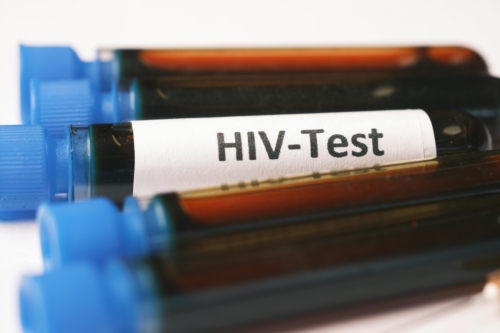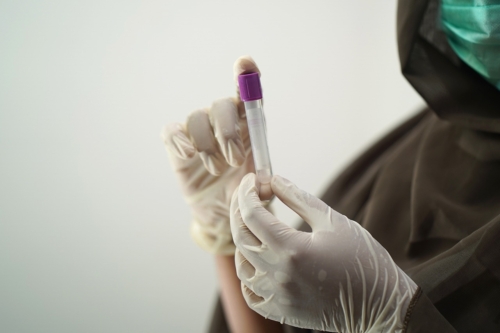Wife gets house arrest in HIV case
A Flora woman will spend one year under house arrest for knowingly exposing her husband to HIV.
SX was sentenced in Madison County Circuit Court on Friday to 10 years in prison with nine suspended after pleading guilty to knowingly exposing her husband to the deadly virus which causes AIDS.
Prosecutors said SX, 28, knew she carried HIV since 1997, but never told her husband, SH of Flora, whom she married in 2003.
SH, 36, and the couple’s 5-year-old son have tested negative for the virus.
“We handled this case like any other as it relates to a plea bargaining,” Madison-Rankin District Attorney Michael Guest said. “If she had not entered a guilty plea, we were ready to start the trial. We would have called on the husband and doctors to prove the state’s case.
“The trial, which was set to begin today, would have been the first known criminal case in the state involving exposure to HIV since Mississippi’s law prohibiting exposure went into effect in 2004.
Most states have laws prohibiting willfully exposing someone to HIV, which is passed on most commonly through unprotected sexual activity, injected drug use or from mother to child during birth or breastfeeding.
Guest said the nine years of suspended jail time was something both sides agreed upon. Ten years is the maximum prison sentence.
SX and SH are getting a divorce and are in a custody battle over their son.
“This has been tough on my whole family. We treated her like she was family, now everyone feels betrayed,” SH said Monday. “She has yet to show any remorse or apologize for what she has put us through.”
Chokwe Lumumba, SX’s attorney, was unavailable for comment.
In August 2007, SH took his wife to the doctor, who informed him she had HIV. He confronted her, and she admitted she had known for several years, and that’s when he contacted authorities, Guest said.
In November 2007, SH filed a petition asking for the couple’s marriage to be annulled, court records show.
He is citing fraud as grounds for an annulment and “habitual cruel and inhumane treatment” as alternate grounds for a divorce.
He also is seeking permanent custody of their son and has asked for a temporary restraining order against his wife.
SX has filed a counter claim for divorce, denying her husband’s accusations and alleging she was the one who suffered “habitual cruel and inhumane treatment.”
The civil case is pending.
When asked does he think justice has been served, SH said, “The way I look at it, her justice is coming later.”
Wife faces jail time for secret HIV status
After more than four years of marriage, a Flora man recently learned his wife is HIV positive and put him at risk of contracting the virus that causes AIDS, authorities say.
SX’s secret was revealed in August, but authorities say she had known since 1997 – five years before getting married – that she had HIV.
Her husband, SH, went to authorities, and now SX, 28, faces up to 10 years in prison, if convicted on a felony charge of knowingly exposing him to the deadly virus.
SH has not tested positive for HIV, and the couple’s 4-year-old son also tested negative.
Most states have laws that prohibit transmission or exposure to HIV, which is passed on most commonly through unprotected sexual activity, injection drug use or from mother to child during birth or breastfeeding.
Mississippi’s law prohibiting exposure went into effect in 2004, but Madison-Rankin District Attorney Michael Guest called the case “extremely rare.”
“This is the first case like this I have seen,” he said.
There are at least 8,806 people living with HIV or AIDS in Mississippi, according to the state Department of Health.
Bebe Anderson, HIV project director for N.Y.-based Lambda Legal, said her organization has concerns over state laws specific to HIV cases. Lambda Legal is a national civil rights group representing lesbians, gay men and people with HIV.
“Most of the laws do not say anything about intent,” Anderson said. “People with HIV aren’t generally trying to hurt or harm other people.”
In Texas, an HIV-positive man recently received 35 years in prison for spitting into the eye and mouth of a Dallas police officer, even though the Centers for Disease Control and Prevention report that saliva has never been shown to result in transmission of HIV.
And a man received a 12-year prison sentence in Arkansas this week for exposing two women to the virus, one of whom was his fiancee.
“Often these cases draw a lot of attention and they can get confusing information out there,” Anderson said.
She said cases like the one in Dallas can cause people to mistakenly think HIV can be transmitted through saliva. Cases like the one in Arkansas could give people the impression that people with HIV try to conceal it from their sexual partners.
“It sends out this message that people with HIV are going out and deliberately trying to harm others,” she said.
In what could be Mississippi’s first case under the HIV exposure law, SX was indicted by a Madison County grand jury and arrested last week, court records show. She is out on $20,000 bond awaiting an Aug. 26 trial.
According to court documents, the Howells married in Yazoo County in April 2003 and had a child that fall.
State law requires couples take blood tests to obtain marriage licenses, but samples are screened only for syphilis.
Last August, SH took his wife to the doctor and the doctor informed him she had HIV. He confronted SX and she admitted she had known for several years, Guest said.
SH, 36, went to the Madison County Sheriff’s Department and reported the exposure. In November, he filed a petition asking that the couple’s marriage be annulled, court records show.
Felecia Perkins, SX’s attorney in the criminal and divorce proceedings, would say only that her client “looks forward to having her day in court.”
SH is citing fraud as grounds for an annulment and “habitual cruel and inhumane treatment” as alternate grounds for a divorce. The case is pending.
He also is seeking permanent custody of their son and has asked for a temporary restraining order against his wife.
SX has filed a counter claim for divorce, denying her husband’s accusations and alleging she was the one who suffered “habitual cruel and inhumane treatment.”
SH’s divorce attorney, David Valentine, did not return calls for comment.
Mississippi’s HIV exposure law is not as specific as those in some states. However, it does, specify that “prior knowledge and willing consent to the exposure is a defense.”
Mississippi’s HIV exposure law was passed a year after a Natchez man was accused of having unprotected sex with at least two women, and possibly up to nine, without telling them he was HIV positive.
One of the women, who had lived with White for five years, contracted the virus and died. The other was not infected.
Sean Reynald White was charged with murder and aggravated assault.
Despite White knowing since the early 1990s that he had HIV, prosecutors would have had to prove intent to harm the women to convict him, authorities said.
Adams County District Attorney Ronnie Harper dropped the charges, citing lack of evidence.
Lambda Legal representatives have repeatedly expressed their concern that exposure laws could keep some people from getting tested.
HIV and AIDS are reportable diseases, so doctors must notify the Health Department if a patient tests positive, state epidemiologist Dr. Mary Currier said. Last year, 611 new cases of HIV were reported.
While she could not speak directly about the case, Currier said the Health Department meets with each person reported to be HIV positive and counsels the person on preventing the spread of the virus.
“They are supposed to tell potential partners they are infected,” Currier said.
CDC studies have shown female-to-male transmission of HIV is about four times less likely to occur than from male to female.
The Health Department can deem people who knowingly expose others to HIV or other sexually transmitted diseases as serial infectors, and can take them to court.
Several years ago, the state Health Department placed a male prostitute carrying the AIDS virus under quarantine. The order prohibited James Henry McIntyre from engaging in any sexual activity for pay, soliciting for such or engaging in any sexual conduct without informing his prospective partner that he carried the virus.
“Most people are responsible, so we don’t have that problem very often,” Currier said.




